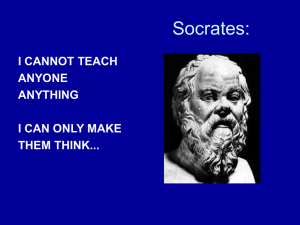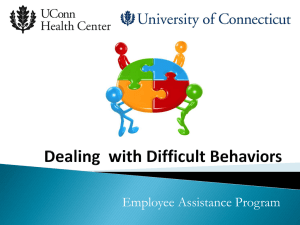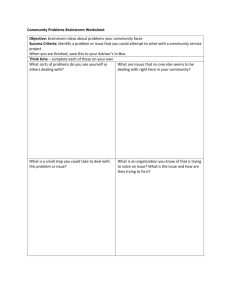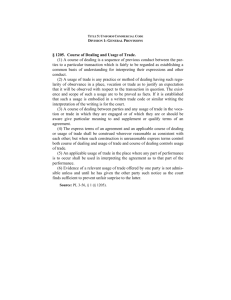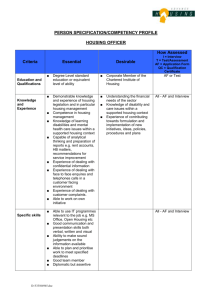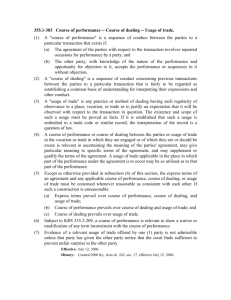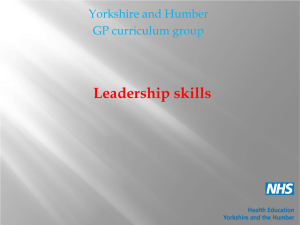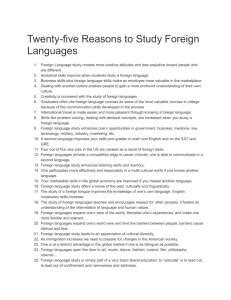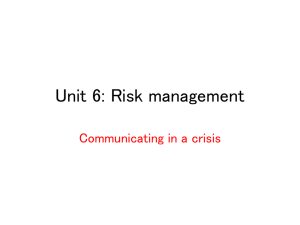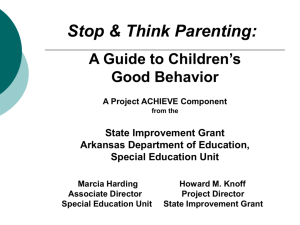Conflict Resolution Skills for Healthy Relationships
advertisement
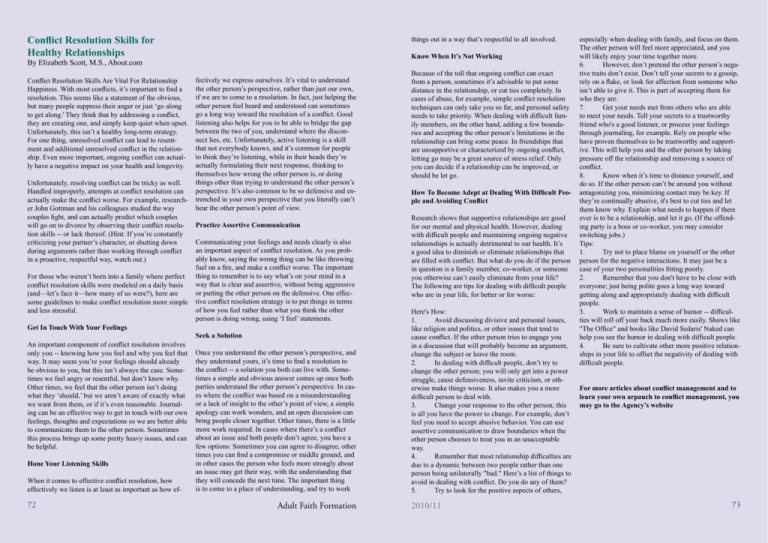
Conflict Resolution Skills for Healthy Relationships things out in a way that’s respectful to all involved. Know When It’s Not Working By Elizabeth Scott, M.S., About.com Conflict Resolution Skills Are Vital For Relationship Happiness. With most conflicts, it’s important to find a resolution. This seems like a statement of the obvious, but many people suppress their anger or just ‘go along to get along.' They think that by addressing a conflict, they are creating one, and simply keep quiet when upset. Unfortunately, this isn’t a healthy long-term strategy. For one thing, unresolved conflict can lead to resentment and additional unresolved conflict in the relationship. Even more important, ongoing conflict can actually have a negative impact on your health and longevity. Unfortunately, resolving conflict can be tricky as well. Handled improperly, attempts at conflict resolution can actually make the conflict worse. For example, researcher John Gottman and his colleagues studied the way couples fight, and can actually predict which couples will go on to divorce by observing their conflict resolution skills -- or lack thereof. (Hint: If you’re constantly criticizing your partner’s character, or shutting down during arguments rather than working through conflict in a proactive, respectful way, watch out.) For those who weren’t born into a family where perfect conflict resolution skills were modeled on a daily basis (and—let’s face it—how many of us were?), here are some guidelines to make conflict resolution more simple and less stressful. Get In Touch With Your Feelings An important component of conflict resolution involves only you -- knowing how you feel and why you feel that way. It may seem you’re your feelings should already be obvious to you, but this isn’t always the case. Sometimes we feel angry or resentful, but don’t know why. Other times, we feel that the other person isn’t doing what they ‘should,’ but we aren’t aware of exactly what we want from them, or if it’s even reasonable. Journaling can be an effective way to get in touch with our own feelings, thoughts and expectations so we are better able to communicate them to the other person. Sometimes this process brings up some pretty heavy issues, and can be helpful. Hone Your Listening Skills When it comes to effective conflict resolution, how effectively we listen is at least as important as how ef- 72 fectively we express ourselves. It’s vital to understand the other person’s perspective, rather than just our own, if we are to come to a resolution. In fact, just helping the other person feel heard and understood can sometimes go a long way toward the resolution of a conflict. Good listening also helps for you to be able to bridge the gap between the two of you, understand where the disconnect lies, etc. Unfortunately, active listening is a skill that not everybody knows, and it’s common for people to think they’re listening, while in their heads they’re actually formulating their next response, thinking to themselves how wrong the other person is, or doing things other than trying to understand the other person’s perspective. It’s also common to be so defensive and entrenched in your own perspective that you literally can’t hear the other person’s point of view. Practice Assertive Communication Communicating your feelings and needs clearly is also an important aspect of conflict resolution. As you probably know, saying the wrong thing can be like throwing fuel on a fire, and make a conflict worse. The important thing to remember is to say what’s on your mind in a way that is clear and assertive, without being aggressive or putting the other person on the defensive. One effective conflict resolution strategy is to put things in terms of how you feel rather than what you think the other person is doing wrong, using ‘I feel’ statements. Seek a Solution Once you understand the other person’s perspective, and they understand yours, it’s time to find a resolution to the conflict -- a solution you both can live with. Sometimes a simple and obvious answer comes up once both parties understand the other person’s perspective. In cases where the conflict was based on a misunderstanding or a lack of insight to the other’s point of view, a simple apology can work wonders, and an open discussion can bring people closer together. Other times, there is a little more work required. In cases where there’s a conflict about an issue and both people don’t agree, you have a few options: Sometimes you can agree to disagree, other times you can find a compromise or middle ground, and in other cases the person who feels more strongly about an issue may get their way, with the understanding that they will concede the next time. The important thing is to come to a place of understanding, and try to work Adult Faith Formation Because of the toll that ongoing conflict can exact from a person, sometimes it’s advisable to put some distance in the relationship, or cut ties completely. In cases of abuse, for example, simple conflict resolution techniques can only take you so far, and personal safety needs to take priority. When dealing with difficult family members, on the other hand, adding a few boundaries and accepting the other person’s limitations in the relationship can bring some peace. In friendships that are unsupportive or characterized by ongoing conflict, letting go may be a great source of stress relief. Only you can decide if a relationship can be improved, or should be let go. How To Become Adept at Dealing With Difficult People and Avoiding Conflict Research shows that supportive relationships are good for our mental and physical health. However, dealing with difficult people and maintaining ongoing negative relationships is actually detrimental to our health. It’s a good idea to diminish or eliminate relationships that are filled with conflict. But what do you do if the person in question is a family member, co-worker, or someone you otherwise can’t easily eliminate from your life? The following are tips for dealing with difficult people who are in your life, for better or for worse: Here's How: 1. Avoid discussing divisive and personal issues, like religion and politics, or other issues that tend to cause conflict. If the other person tries to engage you in a discussion that will probably become an argument, change the subject or leave the room. 2. In dealing with difficult people, don’t try to change the other person; you will only get into a power struggle, cause defensiveness, invite criticism, or otherwise make things worse. It also makes you a more difficult person to deal with. 3. Change your response to the other person; this is all you have the power to change. For example, don’t feel you need to accept abusive behavior. You can use assertive communication to draw boundaries when the other person chooses to treat you in an unacceptable way. 4. Remember that most relationship difficulties are due to a dynamic between two people rather than one person being unilaterally "bad." Here’s a list of things to avoid in dealing with conflict. Do you do any of them? 5. Try to look for the positive aspects of others, 2010/11 especially when dealing with family, and focus on them. The other person will feel more appreciated, and you will likely enjoy your time together more. 6. However, don’t pretend the other person’s negative traits don’t exist. Don’t tell your secrets to a gossip, rely on a flake, or look for affection from someone who isn’t able to give it. This is part of accepting them for who they are. 7. Get your needs met from others who are able to meet your needs. Tell your secrets to a trustworthy friend who's a good listener, or process your feelings through journaling, for example. Rely on people who have proven themselves to be trustworthy and supportive. This will help you and the other person by taking pressure off the relationship and removing a source of conflict. 8. Know when it’s time to distance yourself, and do so. If the other person can’t be around you without antagonizing you, minimizing contact may be key. If they’re continually abusive, it's best to cut ties and let them know why. Explain what needs to happen if there ever is to be a relationship, and let it go. (If the offending party is a boss or co-worker, you may consider switching jobs.) Tips: 1. Try not to place blame on yourself or the other person for the negative interactions. It may just be a case of your two personalities fitting poorly. 2. Remember that you don't have to be close with everyone; just being polite goes a long way toward getting along and appropriately dealing with difficult people. 3. Work to maintain a sense of humor -- difficulties will roll off your back much more easily. Shows like "The Office" and books like David Sedaris' Naked can help you see the humor in dealing with difficult people. 4. Be sure to cultivate other more positive relationships in your life to offset the negativity of dealing with difficult people. For more articles about conflict management and to learn your own arpauch to conflict management, you may go to the Agency’s website 73
